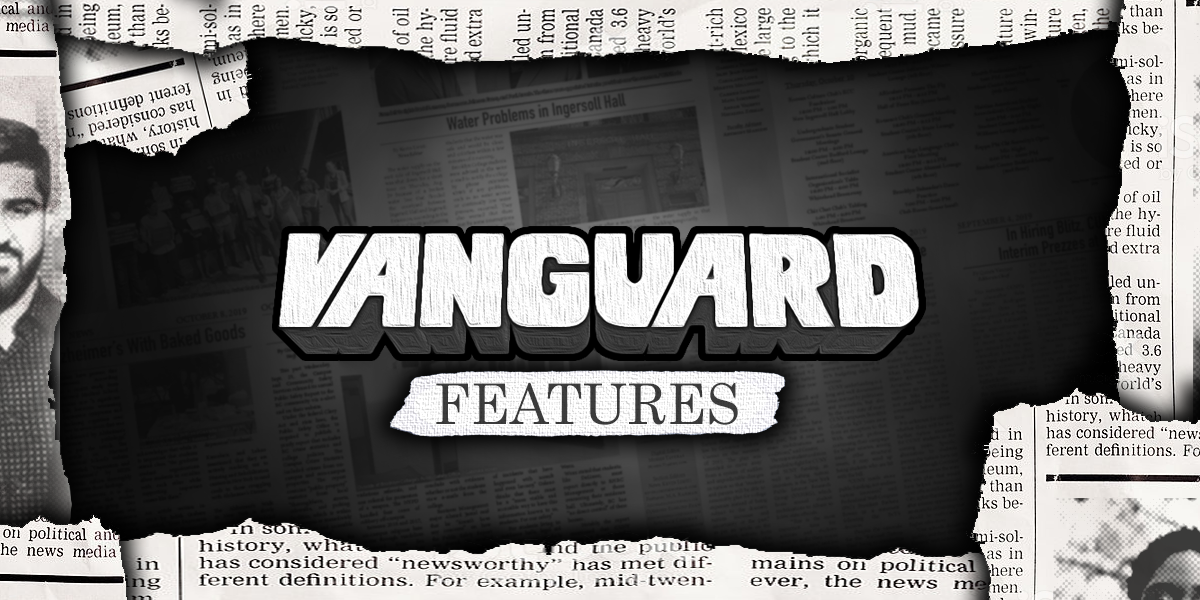
Written By Chaya Gurkov/Quiara Vasquez
When BC professor Andrew Meyer checked his e-mail during the winter session, he came face-to-face with a hatred that New Yorkers have heard a lot about these past few months.
“The heading was ‘seeking truths about blacks and Jews,’” Meyer told the Vanguard. The e-mail encouraged recipients to print out, copy, and distribute pamphlets with slanderous anti-Semitic content. “The English was all grammatically strange, almost as if it was programmed under an algorithm. It was so gratuitously offensive and nihilistically geared toward hatred and spreading these lies, almost as if they were trying to reach someone mentally unstable and give them some ideas.”
Meyer wasn’t the only person to get this message. At least two other Brooklyn College professors received that same anti-Semitic e-mail; because the e-mail was bcc’ed, the real number of recipients is likely significantly higher.
Tragically, these sort of anti-Semitic incidents have precedent. Over the course of these past few months, more violent anti-Semitic hate crimes and attacks have been cropping up in the news, and lately they have been hitting closer to home in Brooklyn and the surrounding areas. Nine anti-Semitic attacks were reported to the NYPD over the course of Hanukkah; two attacks that occurred in Crown Heights on Dec. 24 were perpetrated against men wearing traditional-looking Jewish garb. A similar attack occurred in Borough Park the next day when a man wearing Hasidic clothing was allegedly punched in the face while walking home. To top it all off, police arrested a woman that Friday in Crown Heights after she slapped and yelled anti- Semitic slurs at three different Orthodox women in the street.
With this surge in hostility towards the openly religious, a concern that’s making Jews question whether or not it’s safe to walk in the streets as identifiably Jewish anymore seems to be settling amongst the Orthodox communities.
“I think a lot of students and Jewish people are scared for their lives right now. It’s not hiding behind ‘anti-Zionism’ anymore, it’s straight out ‘kill the Jews,’” said Rabbi Moshe Raichik, a well-known and respected member of the Jewish Chabad movement and director of Chabad on BC Campus.
Rabbi Raichik blamed the upsurge in anti-Semitic behavior on jealousy, prejudices, and in particular, the hate speech of minister Louis Farrakhan.
“Louis Farrakhan spews anti-Semitism on a constant basis and has a huge following,” Raichik told the Vanguard. Maybe not concidentally, a video of Farrakhan was included in the anti-Semitic e-mails that were sent around to numerous college professors.
Farrakhan has been recorded multiple times throughout his career making discriminatory and out right anti-Semitic statements, most recently in October 2018 when he tweeted, “I am not anti-Semite. I am anti-Termite.” The tweet was deleted shortly thereafter.
Despite such displays of anti-Semitism, many people refused to accept that this may be a new reality, with a demonstration of unity and support for the Jewish community taking place on Sunday, Jan. 5th. Over 25,000 people attended a march across the Brooklyn Bridge to signify that there’s no place for anti-Semitism in America. Many prominent elected officials showed up and marched alongside the crowd to reinforce this critical message, as well as many CUNY students and faculty.
“I hoped to bring [to Brooklyn College] the sense of unity, the understanding that we cannot tolerate discrimination, and that we must stand up for each other during difficult times,” said Fay Yanofsky, a BC student and Vice Chair of Fiscal Affairs for CUNY’s University State Senate (USS). Yanofsky is one of three openly religious members of the Jewish faith in the University State Senate, professing to be proud of the culture of diversity and inclusion at Brooklyn College.
Although the Jewish community shoulders the rise in hate, the support and fight for change ranges far past them. CUNY Chancellor Felix V. Matos Rodriguez was among the 25,000 marchers, saying, “I’m participating today in this march for no hate and no fear with New Yorkers of all faiths and all backgrounds.”
Beyond urging “each individual to do their part by extending their empathy towards people of diverse backgrounds,” President of BC Student Government, Alyssa Taylor, is overseeing the “We Stand Against Hate” initiative, started by BC President Michelle Anderson in 2017. The WSAH initiative was designed to give students a deeper comprehension on challenging topics through lectures, panels and discussions. Combatting anti-Semitism, an integral part of WSAH, was present in demonstrations from numerous notable individuals in the past, the most recent one occurring Tuesday, Jan 27, with Professor Micha Tomkiewicz speaking on his experiences as a Holocaust survivor.
In a statement provided to The Vanguard, President Anderson reaffirmed the college’s commitment to fighting hate.
“We will continue to foster an environment that is welcoming for all our students, staff, and faculty,” Anderson told the Vanguard. “Key to that inclusiveness is public programs that eschew anti-Semitism and bigotry and strongly promote compassion and understanding.”
